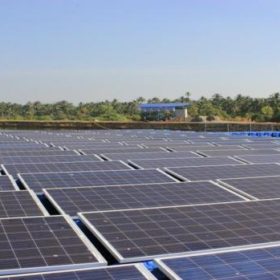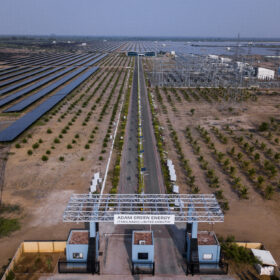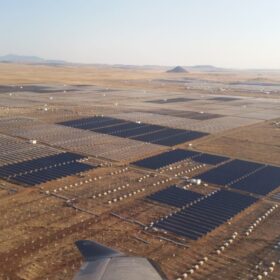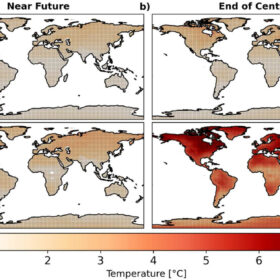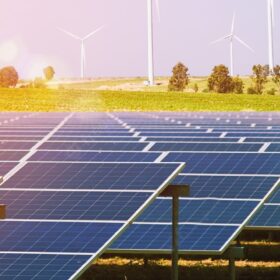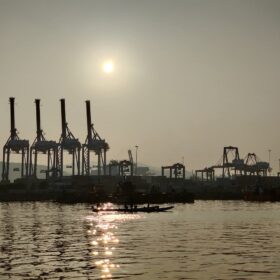India’s installed solar power capacity expected to hit 104 GW by March 2025
ICRA expects India’s installed solar power capacity to grow to 104 GW by March 2025 from 72 GW as of October 2023, led by strong policy support and moderation in solar module prices.
NTPC launches 1.5 GW solar tender
NTPC has also invited bids to supply 1.5 GW of renewable power from wind-solar hybrid power projects. The projects can be developed anywhere in India
China’s Sunpure to supply L&T with PV cleaning robots for 805 MWp solar project in Saudi Arabia
Sunpure will supply Larsen & Toubro with over 1,500 water-free cleaning robots for an 805 MWp solar project in Saudi Arabia.
Adani Green ranks among top 3 large-scale solar developers globally
Adani Green Energy Ltd (AGEL) is the world’s second-largest large-scale solar developer with a PV portfolio of 18.1 GW. It is also the only player from Asia in the global large-scale solar PV developer ranking.
Adani Green secures $1.36 billion debt facility to finance Khavda RE Park
Adani Green Energy Ltd (AGEL) has secured a $1.36 billion debt facility from eight international banks in one of the largest project finance deals in Asia. It will use the funding to develop the world’s largest renewable energy park at Khavda in Gujarat.
EDF, Scatec Africa win South Africa’s battery procurement auction
The South African Government’s Department of Mineral Resources and Energy announced French utility Électricité de France (EDF) will develop 257 MW of battery energy-storage systems across three projects, while South African renewable energy company Scatec Africa will develop one 103 MW project.
Eden Renewables signs 300 MW solar PPA with SECI
Eden Renewables India has announced the signing of 300 MW power purchase agreement (PPA) with Solar Energy Corp. of India Ltd, for sale of renewable energy.
ReNew signs MoU with Asian Development Bank for $5.3 billion
ReNew has signed a memorandum of understanding with the Asian Development Bank for the financing of renewable energy, manufacturing, carbon offset, and green hydrogen projects between 2023 and 2028.
Solar productivity negatively impacted by emissions and aerosols, study finds
A study by engineers at UNSW, published in the Renewable Energy journal, shows that aerosols and greenhouse gas emissions reduce the productivity of photovoltaic installations and that this differs according to the global region.
ADB approves $250 million loan for India’s power sector reforms
The Asian Development Bank (ADB) has approved a $250 million policy-based loan to strengthen the market for power trade and related ancillary services in India, facilitating the integration of intermittent renewable energy. The loan will also enable measures to improve the financial performance, corporate governance, and service quality of electricity distribution companies (DISCOM) and create a conducive environment for private sector investment.
